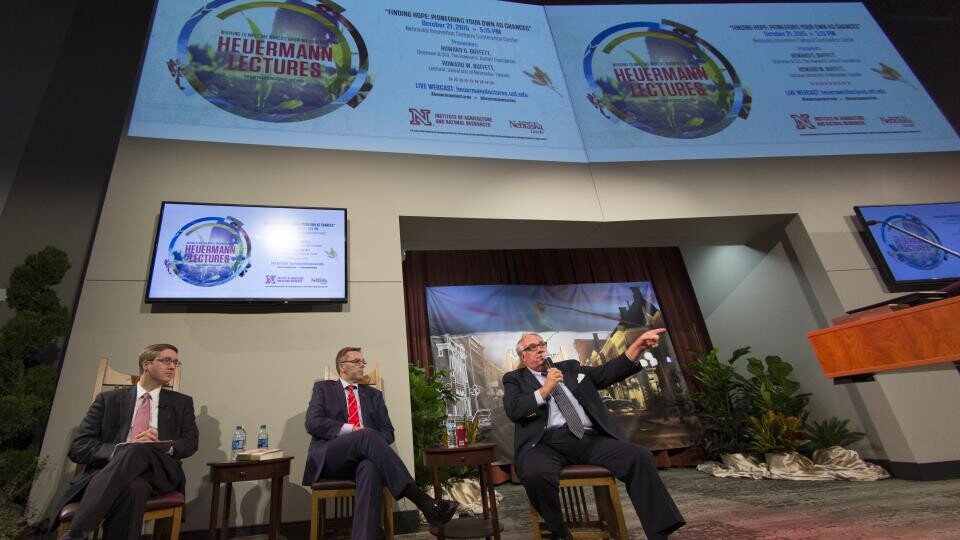
Hope inspires vision. That was the message of the third national Rural Futures Conference this week at Nebraska Innovation Campus in Lincoln and the Nebraska College of Technical Agriculture in Curtis.
More than 600 people from 18 states and three countries gathered to discuss finding hope for the rural United States.
The conference, hosted by the Rural Futures Institute at the University of Nebraska, aimed to help rural leaders learn how to build hope and invigorate rural places. RFI believes that a strong vision coupled with active hope can energize the rural landscape and create brighter futures. According to NU President Hank Bounds, RFI aligns with his vision for the university to become a giant in higher education.
“It’s clear to me that this university needs to be a giant in the rural space,” Bounds said. “We need to deploy our resources in a way that will help rural communities thrive.”
Attendees heard from Shane Lopez, Gallup senior scientist in residence, on the importance of hope. In his newest evolution of positive psychology, Lopez provided strategies for building a high-hope mindset and shared uplifting stories of real people who created hope and who changed their own lives as well as their schools, workplaces and communities.
“The most beautiful and ancient thing we have in our lives is hope,” Lopez said. “We need to save our hope for the most important pursuits in our lives.”
Several entrepreneurs who are helping rural America thrive were on hand to inspire attendees. Barry Fox, co-owner of Kikaider Brewing Company of Broken Bow, shared his experience of utilizing strong community connections and rural resources to develop a niche industry. Fox encouraged the audience to not overlook rural America when seeking business opportunities.
“You may have just as much opportunity in a smaller community that you would have in a larger community, and without the competition,” he said.
Ben Blacha, entrepreneur and owner of Ace Ortho Solutions in Benkelman, took part in an entrepreneurship panel discussion moderated by Tom Field, director of the Engler Business Entrepreneurship Program at the University of Nebraska-Lincoln. Blancha’s message was to stop spending time and resources on ideas aimed at bringing creative people to rural communities. Creative people are already living in those places, he said.
“Don’t ask how do we get them to come. We have all of the resources we need right here,” said Blacha. “It’s more about, ‘How do we enable them?’”
Other conference sessions focused on how technology and broadband can increase hope in a community, the importance of giving back to rural places and how to bridge the gap between climate, ecotourism and increasing resiliency in rural communities.
The conference also featured a discussion by Howard G. Buffett and his son, Howard W. Buffett. The two co-authored the New York Times bestseller “40 Chances: Finding Hope in a Hungry World,” which examines global agriculture, hunger and food systems challenges.
“We built this country from rural America up,” Howard G. Buffett said. “Rural America has to survive and stay strong. It’s the people sitting in this room and coming to this conference that can do that.”
For more information on the conference and the Rural Futures Institute, click here.







